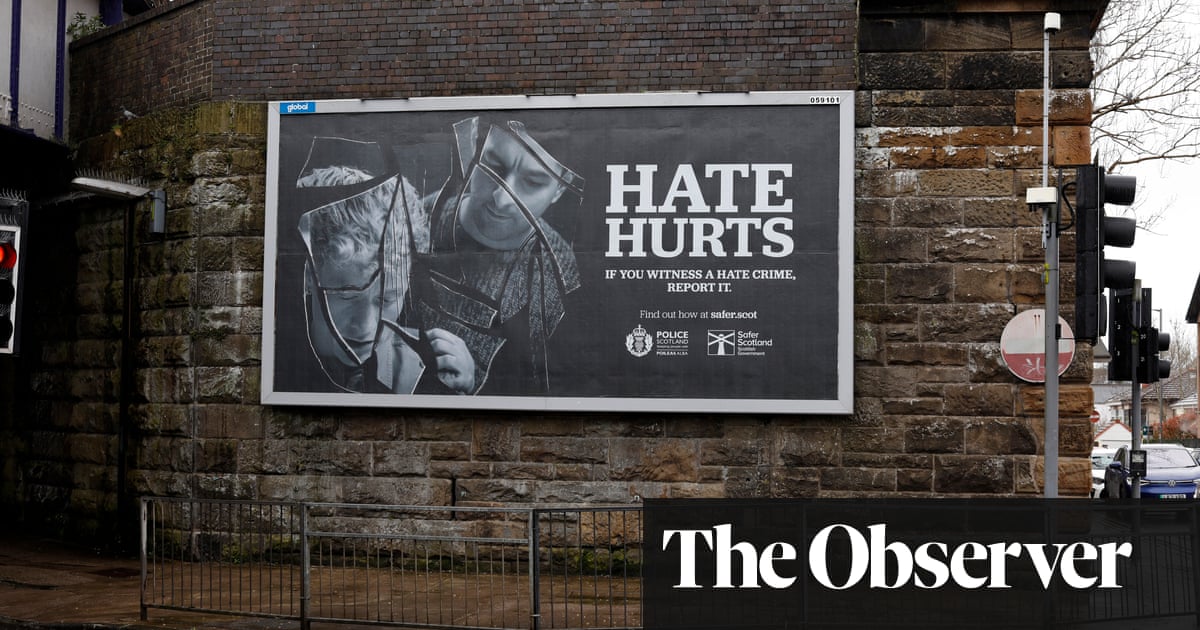- cross-posted to:
- worldnewsnonus@lemy.lol
- cross-posted to:
- worldnewsnonus@lemy.lol
First minister calls for end to vexatious reports after far-right agitators attempt to ‘overwhelm’ official systems
Neo-Nazi and far-right agitators are exploiting Scotland’s new hate crime law to make vexatious complaints en masse in an attempt to “overwhelm” police systems.
A prominent figure in England’s white nationalist movement is among those urging followers to spam Police Scotland with anonymous online reports, the *Observer *has found.
The leader of a far-right group – one of several fringe organisations being assessed by the UK government under its new extremism definition – promoted a private channel on the encrypted messaging app Telegram that includes a “call to action” urging members to “mass report”.
Posts in the channel instruct members to log cases of supposed “anti-white” hate, which they say includes a statement on the police force’s website that “young men aged 18-30 are most likely to commit hate crime”.



… In Scotland?
The only military-like police I’ve ever interacted with are all the ones in the USA.
No, it’s not just a U.S. problem
The problems with police Scotland aren’t anywhere near the same scale. That article had to go back to 1998 to find a second suspicions death that Police Scotland may be responsible for.
It also misleading presents data suggesting women are leaving at a higher rate. When the numbers in the article show that women are less likely to leave the police force than men. They also say that ethnic minorities are leaving at a higher rate than other groups. But it’s only 1% higher and the amount of people leaving is small and the amount of ethnic minorities are small. This is mostly likely noise in the data.
Police Scotland don’t have a lot of ethnic minorities because Scotland doesn’t have a lot of ethnic minorities. Many of the ethnic minorities in Scotland are recent immigrant or their children. It takes time for them to take up positions in authorities like the police and army. Especially senior positions. For those you need to compare it to the ethnic make up of Scotland 30 years ago. The 1991 census found 99% of people in Scotland reported themselves as white. That’s when the executive level police officers would have been recruited.
Police Scotland could do better to welcome and encourage woman and ethnic minorites in Scotland. They’ve had historic issues, especially with sectarianism and sexism. But they aren’t anywhere near the problems US cops have.
The most recent police shooting in Scotland had the police shooting a dog. That’s what made national news because they aren’t shooting people. Only the equivalent of specialist squat team police get guns in Scotland (even then they leave them in the car most of the time). That officer would have been suspended because he fired his weapon pending investigation (even though the dog was a dangerous bred and was attacking people).
Police Scotland also turned up at a protest against shipping asylum seekers off. They didn’t turn up to fight the crowd, they made the UK government officials release the asylum seekers.
They also took very innovative approaches to tackling violence in Glasgow. Rather than increase enforcement they identified the issue was a social issue not a criminal one. They took a joined up approach, involving social workers, families and schools etc. They realised force wasn’t the answer. This was very innovative at the time. Violence in Glasgow is now very low.
Police Scotland aren’t perfect. But they’re relatively good at policing fairly and effectively. If anything they should be used as an example for most police forces. Their is a lot of criticism for how they aren’t turning up to deal with minor crimes or have lots of officers on the beat. But they are very effective at tackling major crimes. The biggest problem is reduced resources (UK never recovered from austerity after 2008) and court backlogs (COVID and austerity).